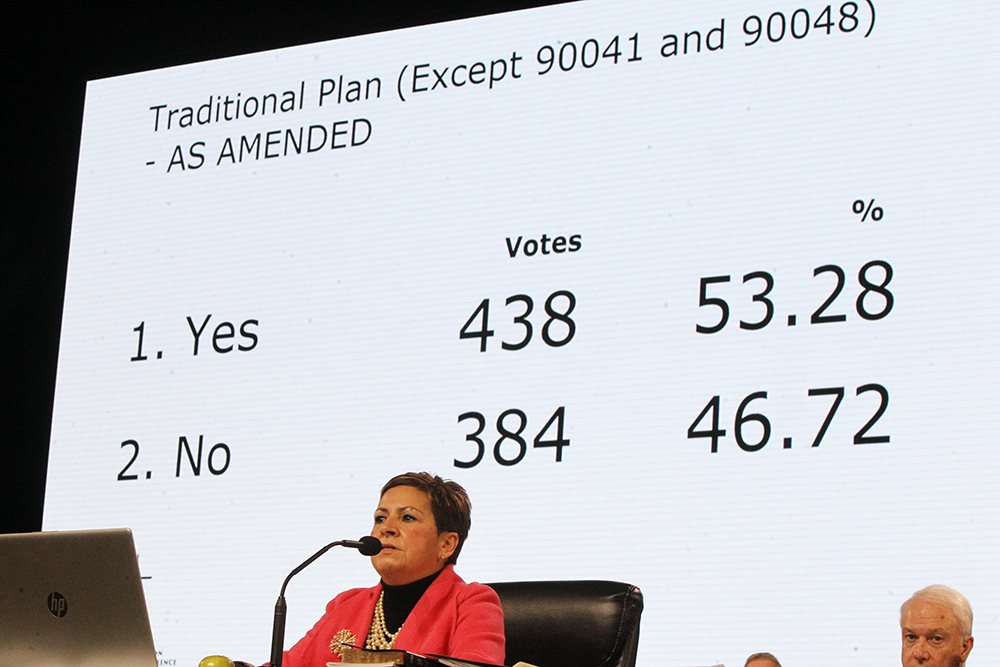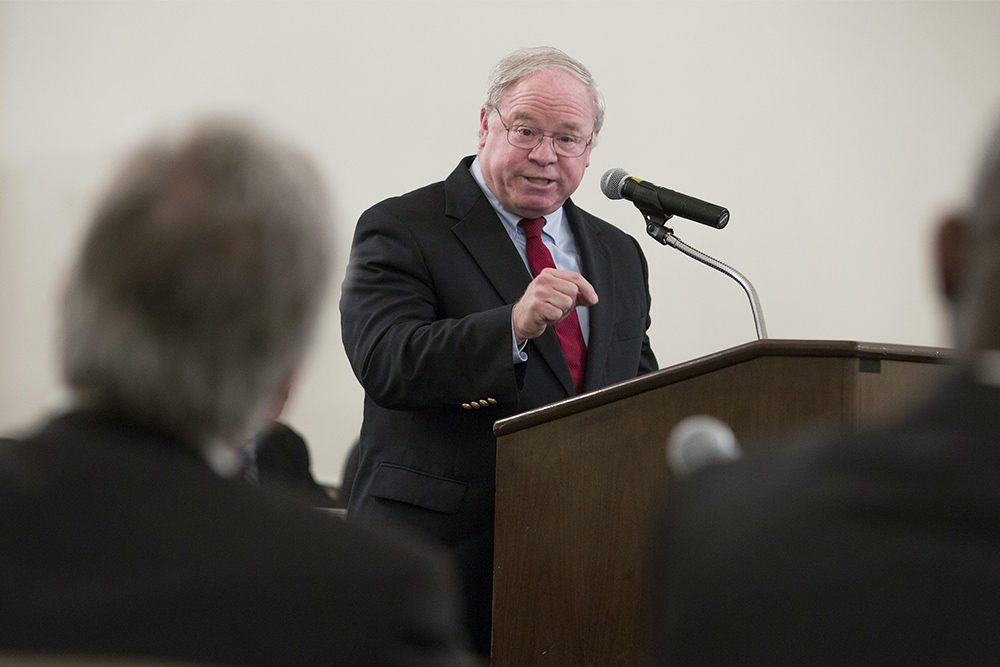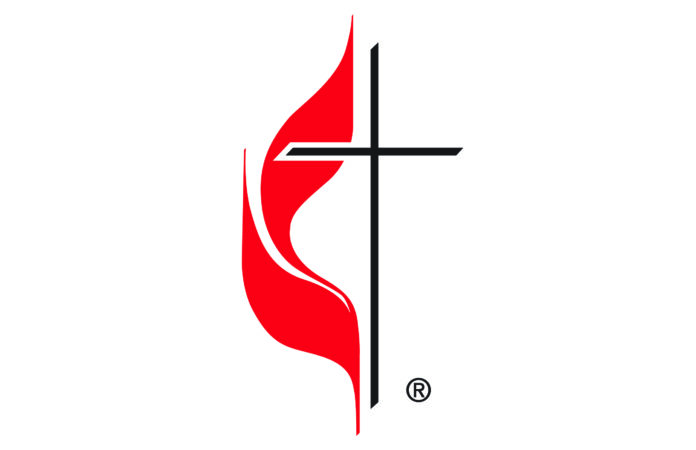(RNS) — Last week, when the United Methodist Church postponed — for the third time in as many years — a vote on an orderly plan to split the mainline Protestant denomination long riven by disagreement over the full inclusion of its LGBTQ members, some conservative United Methodists announced they were finally done: They would launch a new denomination in May, orderly plan or no.
And United Methodists across the theological spectrum were left asking a number of questions, not only about the logistics of congregations leaving one Methodist denomination to join another, but also about the meeting where delegates are expected to discuss those plans to split.
“There are more unknowns than there are knowns around delegations,” said Jan Lawrence, head of the Reconciling Ministries Network, a progressive group that advocates for LGBTQ inclusion.
For decades, debate over ordaining and marrying LGBTQ United Methodists has roiled the United Methodist Church, one of the largest Protestant denominations in the United States.
At a 2019 special session of the denomination’s General Conference, the denomination’s global decision-making body, delegates approved what’s known as the Traditional Plan. Backed by conservative United Methodists, the Traditional Plan strengthened the denomination’s standing bans on the ordination of LGBTQ clergy and same-sex marriage.

Bishop Cynthia Fierro Harvey announces the results of the Traditional Plan votes late on Feb. 26, 2019. RNS photo by Kit Doyle
But after progressives and moderates rebelled against the Traditional Plan, leaders across theological divides negotiated a proposal to split the denomination called the Protocol of Reconciliation and Grace Through Separation. Delegates were expected to vote on that proposal at the 2020 General Conference meeting, to be held in Minneapolis.
Then COVID-19 happened. The meeting was postponed to 2021, then 2022.
Last week, the Commission on General Conference announced it was postponing the meeting again — this time to 2024. Though COVID-19 numbers have dropped in the United States, the commission said, delegates living outside the country are having trouble getting visas to travel to the in-person gathering.
For all this time, United Methodist leaders — right, left and center — have held their collective breath. Leaders of the theologically diverse groups that negotiated the protocol urged their members to remain in the denomination. Conservatives agreed to suspend trials against clergy who are LGBTQ or who perform same-sex weddings.
For those conservatives, last week’s postponement was too much.
“We’re encouraging those who can find a pathway that is appropriate for them to go ahead and exit the denomination,” said the Rev. Keith Boyette, who leads the Transitional Leadership Council that is guiding the creation of the Global Methodist Church, the new conservative denomination.

The Rev. Keith Boyette responds to questions from Judicial Council members during an oral hearing on May 22, 2018 in Evanston, Ill. Photo by Kathleen Barry/UMNS
Last year, the Transitional Leadership Council announced it planned to launch the denomination after the General Conference voted on the protocol. The postponement pushed up that timeline.
“The delay is what the problem is,” Boyette said.
Some conservative groups have questioned the reasoning for a third delay of the General Conference. Other groups are holding meetings this year — even other groups with international membership, according to lay delegate John Lomperis, blogging for the conservative Institute for Religion and Democracy.
There also are questions about how churches and conferences can leave the United Methodist Church to join the new denomination. The Protocol of Reconciliation and Grace Through Separation would have allowed them to leave with their buildings and other assets. A “traditionalist” Methodist denomination was slated to receive $25 million over the next four years.
“Every theologically conservative local congregation and annual conference should have the right to join the Global Methodist Church with all of their property and assets intact,” the new denomination’s organizers said in the statement announcing its plans to launch this year.

